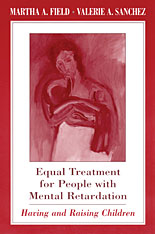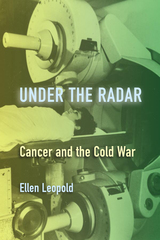
Free and informed consent is one of the most widespread and morally important practices of modern health care; competence to consent is its cornerstone. In this book, Becky Cox White provides a concise introduction to the key practical, philosophical, and moral issues involved in competence to consent.
The goals of informed consent, respect for patient autonomy and provision of beneficent care, cannot be met without a competent patient. Thus determining a patient's competence is the critical first step to informed consent. Determining competence depends on defining it, yet surprisingly, no widely accepted definition of competence exists. White identifies nine capacities that patients must exhibit to be competent. She approaches the problem from the task-oriented nature of decision making and focuses on the problems of defining competence within clinical practice. Her proposed definition is based on understanding competence as occurring in a special rather than a general context; as occurring in degrees rather than at a precise threshold; as independent of consequential appeals; and as incorporating affective as well as cognitive capacities.
Combining both an ethical overview and practical guidelines, this book will be of value to health care professionals, bioethicists, and lawyers.

Engaging in sex, becoming parents, raising children: these are among the most personal decisions we make, and for people with mental retardation, these decisions are consistently challenged, regulated, and outlawed. This book is a comprehensive study of the American legal doctrines and social policies, past and present, that have governed procreation and parenting by persons with mental retardation. It argues persuasively that people with retardation should have legal authority to make their own decisions.
Despite the progress of the normalization movement, which has moved so many people with mental retardation into the mainstream since the 1960s, negative myths about reproduction and child rearing among this population persist. Martha Field and Valerie Sanchez trace these prejudices to the eugenics movement of the late nineteenth and early twentieth centuries. They show how misperceptions have led to inconsistent and discriminatory outcomes when third parties seek to make birth control or parenting decisions for people with mental retardation. They also explore the effect of these decisions on those they purport to protect. Detailed, thorough, and just, their book is a sustained argument for reform of the legal practices and social policies it describes.

Wear develops an efficient and flexible model of informed consent that accommodates both clinical realities and legal and ethical imperatives. In this second edition, he has expanded his examination of the larger process within which informed consent takes place and his discussion of the clinician's need for a wide range of discretion.

In the quarter century since the landmark Karen Ann Quinlan case, an ethical, legal, and societal consensus supporting patients' rights to refuse life-sustaining treatment has become a cornerstone of bioethics. Patients now legally can write advance directives to govern their treatment decisions at a time of future incapacity, yet in clinical practice their wishes often are ignored.
Examining the tension between incompetent patients' prior wishes and their current best interests as well as other challenges to advance directives, Robert S. Olick offers a comprehensive argument for favoring advance instructions during the dying process. He clarifies widespread confusion about the moral and legal weight of advance directives, and he prescribes changes in law, policy, and practice that would not only ensure that directives count in the care of the dying but also would define narrow instances when directives should not be followed. Olick also presents and develops an original theory of prospective autonomy that recasts and strengthens patient and family control.
While focusing largely on philosophical issues the book devotes substantial attention to legal and policy questions and includes case studies throughout. An important resource for medical ethicists, lawyers, physicians, nurses, health care professionals, and patients' rights advocates, it champions the practical, ethical, and humane duty of taking advance directives seriously where it matters most-at the bedside of dying patients.

In Under the Radar, Ellen Leopold shows how nearly every aspect of our understanding and discussion of cancer bears the imprint of its Cold War entanglement. The current biases toward individual rather than corporate responsibility for rising incidence rates, research that promotes treatment rather than prevention, and therapies that can be patented and marketed all reflect a largely hidden history shaped by the Cold War. Even the language we use to describe the disease, such as the guiding metaphor for treatment, "fight fire with fire," can be traced back to the middle of the twentieth century.
Writing in a lucid style, Leopold documents the military, governmental, industrial, and medical views of radiation and atomic energy to examine the postwar response to cancer through the prism of the Cold War. She explores the role of radiation in cancer therapies today, using case studies and mammogram screening, in particular, to highlight the surprising parallels. Taking into account a wide array of disciplines, this book challenges our understanding of cancer and how we approach its treatment.
- Examines the postwar response to cancer through the prism of the Cold War
- Goes beyond medical science to look at the influence of Cold War policies on the way we think about cancer today
- Links the experience of postwar cancer patients with the broader evolution of what have become cancer industries
- Traces the history of human-made radiation as a state-sponsored environmental toxin
READERS
Browse our collection.
PUBLISHERS
See BiblioVault's publisher services.
STUDENT SERVICES
Files for college accessibility offices.
UChicago Accessibility Resources
home | accessibility | search | about | contact us
BiblioVault ® 2001 - 2025
The University of Chicago Press









